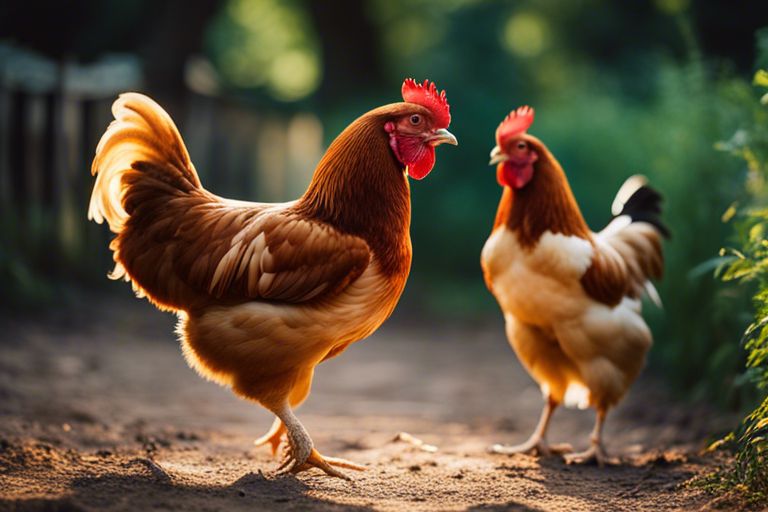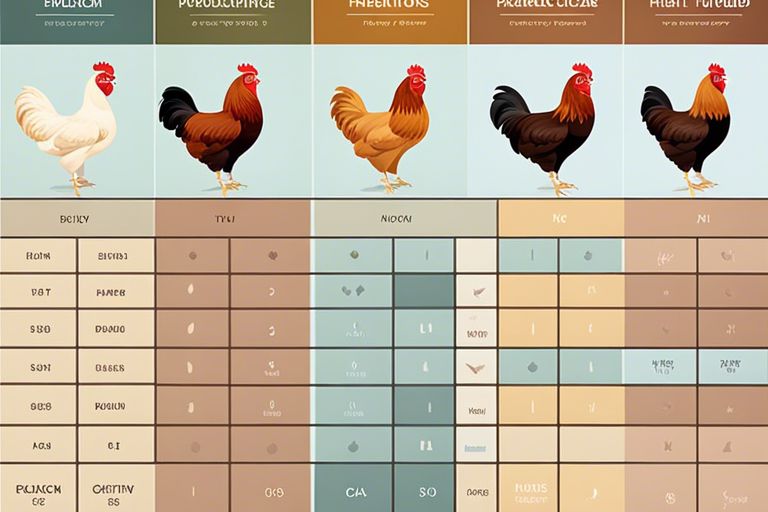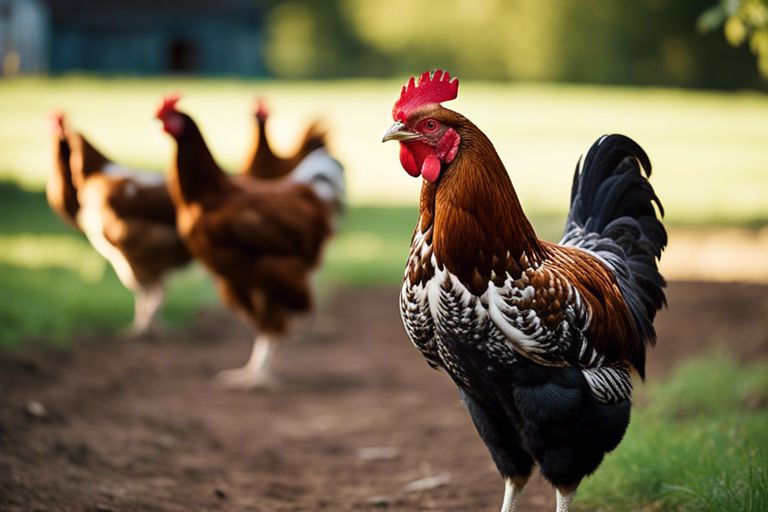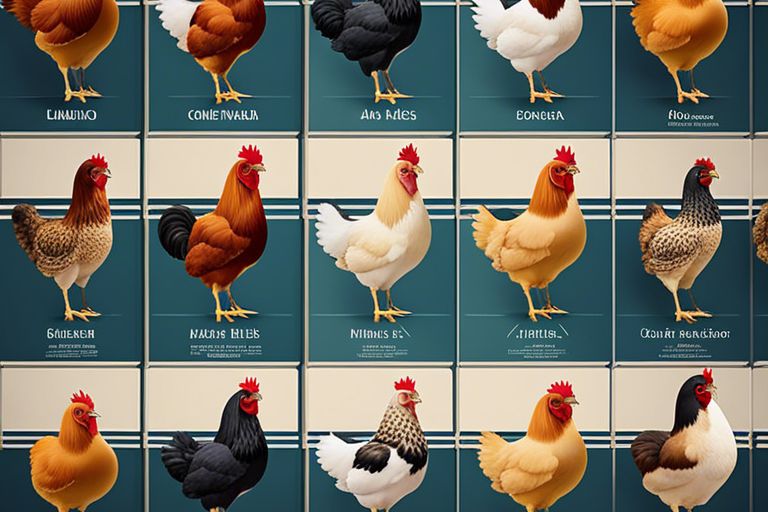It’s fascinating to explore into the world of rare and unique chicken breeds that offer more than just your average backyard fowl. From quirky plumage to exotic origins, these breeds bring a touch of novelty to your flock. Whether you’re a seasoned chicken keeper or just starting out, considering these uncommon breeds can add excitement and diversity to your poultry collection. In this blog post, we’ll explore some lesser-known chicken breeds that deserve a spot in your coop, showcasing their distinctive features and why they are worth considering for your flock.
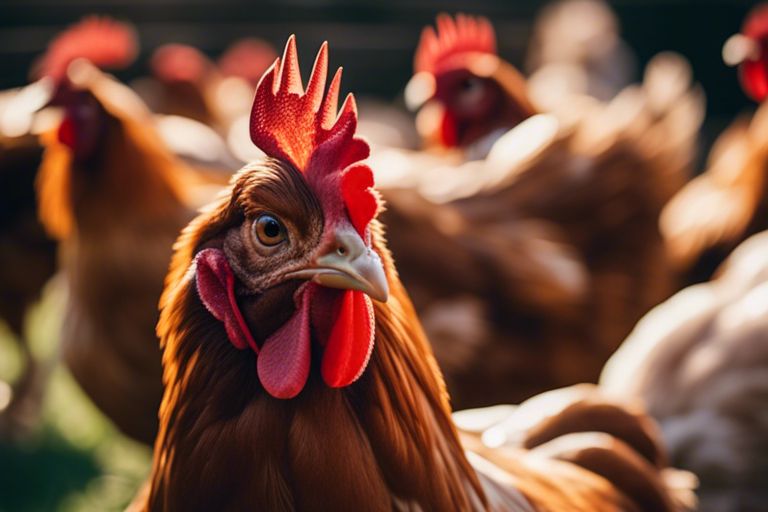
History and Origin of Rare Breeds
Heritage vs. Hybrid Chickens
Before delving into the history of rare chicken breeds, it is crucial to understand the distinction between heritage and hybrid chickens. Heritage breeds are traditional breeds that have been raised by farmers for generations, often prized for their ability to thrive in specific environments and their unique traits. On the other hand, hybrid chickens are the result of crossbreeding different breeds to create birds with specific desirable characteristics, such as increased egg production or better meat quality.
Key Historical Rare Breeds
With a rich history dating back hundreds of years, rare chicken breeds offer a fascinating glimpse into the past. These breeds have been carefully preserved by dedicated breeders and enthusiasts who value their unique qualities and contributions to poultry diversity. Some key historical rare breeds include the Dorking, known for its distinctive five toes and white coloration, as well as the Yokohama, a striking breed with long saddle feathers and a bold presence.
Characteristics of Unique Breeds
Physical Traits and Beauty
Now, when looking at rare and unique chicken breeds, one of the fascinating aspects is their physical traits and beauty. These breeds often showcase stunning and unusual plumage patterns, colors, or even feather types that set them apart from more common chicken varieties. From frizzled feathers to intricate lacing, these birds are a visual delight for any poultry enthusiast.
Behavioral Tendencies
Now, when it comes to the behavioral tendencies of unique chicken breeds, there is a wide range of interesting characteristics to consider. Some of these breeds are known for their docile and friendly nature, making them suitable for families with children or first-time chicken keepers. On the other hand, some rare breeds may exhibit more independent or curious behaviors, adding a touch of personality to your flock.
A deeper look into the behavioral tendencies of rare chicken breeds can reveal specific traits such as foraging abilities, roosting preferences, or even their vocalization patterns. Understanding these behaviors can help you select the right breed that aligns with your preferences and management style as a chicken keeper.
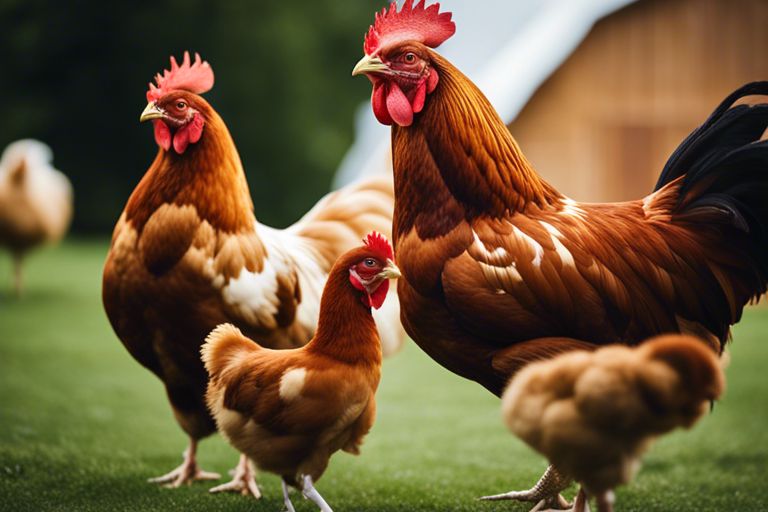
The Benefits of Raising Rare Chickens
Enhancing Genetic Diversity
On top of contributing to the preservation of unique breeds, raising rare chickens also offers the benefit of enhancing genetic diversity within poultry populations. This diversity can lead to increased resilience to diseases and environmental changes, ultimately resulting in healthier and stronger flocks.
Sustainability and Local Adaptation
To ensure the long-term sustainability of poultry farming, it is crucial to consider the local adaptation of chicken breeds to specific environmental conditions. By raising rare chickens that have evolved in different regions or climates, farmers can promote biodiversity and create flocks that are better equipped to thrive in their local surroundings.
Benefits of focusing on sustainability and local adaptation include decreased reliance on external inputs such as antibiotics or artificial heating, as the chickens are naturally adapted to their environment. This leads to a more self-sufficient and eco-friendly farming approach while also supporting the conservation of rare and unique chicken breeds.
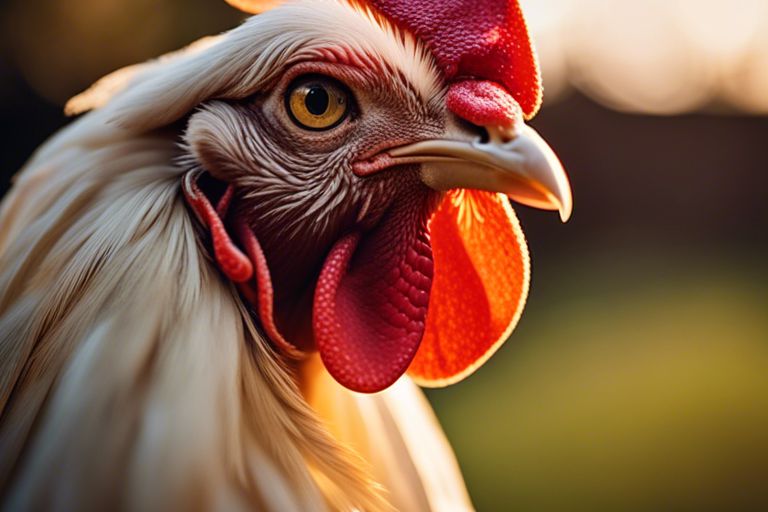
Care and Maintenance
Special Considerations for Rare Breeds
To ensure the well-being of rare chicken breeds, it is important to provide extra care and attention. Not only do these breeds often require specific environmental conditions, but they may also be more susceptible to certain diseases or health issues. It is crucial to research each rare breed extensively and understand their unique needs to provide them with the best possible care.
Health and Nutrition
To maintain the health of rare chicken breeds, a well-balanced diet is imperative. Ensuring they receive proper nutrition through high-quality feed, access to fresh water, and occasional treats will help them thrive. Additionally, regular health check-ups and vaccinations can prevent common diseases and keep your rare breeds in top condition.
Maintenance: Proper health and nutrition are key components in caring for rare and unique chicken breeds. Regular monitoring of their diet, weight, and overall well-being is imperative. Being proactive in identifying any health concerns and addressing them promptly can help ensure a long and healthy life for your rare flock.
Another important aspect of maintaining rare chicken breeds is providing them with a clean and safe living environment. Regularly cleaning their coop, checking for any signs of pests or diseases, and providing adequate space for exercise are all crucial factors in their overall well-being.
Summing up
Upon reflecting on the fascinating world of rare and unique chicken breeds, it becomes evident that there are many intriguing options available for those looking to expand their flock. From the elaborate plumage of the Ayam Cemani to the endearing personalities of the Silkie, these breeds offer a diverse range of characteristics that can appeal to different preferences. By considering the needs of your flock and your own interests, you can find a breed that not only adds beauty to your coop but also brings joy to your everyday life. Exploring these breeds opens up a world of possibilities for those seeking to enrich their chicken-keeping experience.
FAQ
Q: What are some rare and unique chicken breeds to consider?
A: Some rare and unique chicken breeds to consider include Ayam Cemani, Silkie, Sultan, Faverolles, and Polish chickens.
Q: What distinguishes the Ayam Cemani breed from other chickens?
A: The Ayam Cemani breed is known for its all-black appearance, including black feathers, skin, and internal organs, making it a truly unique and striking chicken breed.
Q: What special characteristics do Silkie chickens possess?
A: Silkie chickens are known for their fluffy feathers, black skin, and gentle temperament, making them a popular choice for backyard chicken enthusiasts.
Q: Why are Sultan chickens considered a rare breed?
A: Sultan chickens are considered a rare breed due to their distinctive appearance, which includes a v-shaped comb, vaulted skull, and abundant foot feathering.
Q: What makes Faverolles chickens stand out among other breeds?
A: Faverolles chickens are known for their docile nature, feathered feet, and characteristic beard and muffs, making them both charming and unique.
Q: What are some unique features of Polish chickens?
A: Polish chickens are recognized for their extravagant crest of feathers, known as a topknot or pom-pom, as well as their friendly and sociable personalities.
Q: Are rare and unique chicken breeds suitable for beginners?
A: While some rare and unique chicken breeds may require extra care due to their specific characteristics, with proper research and preparation, they can be suitable for beginners looking for a special addition to their flock.
